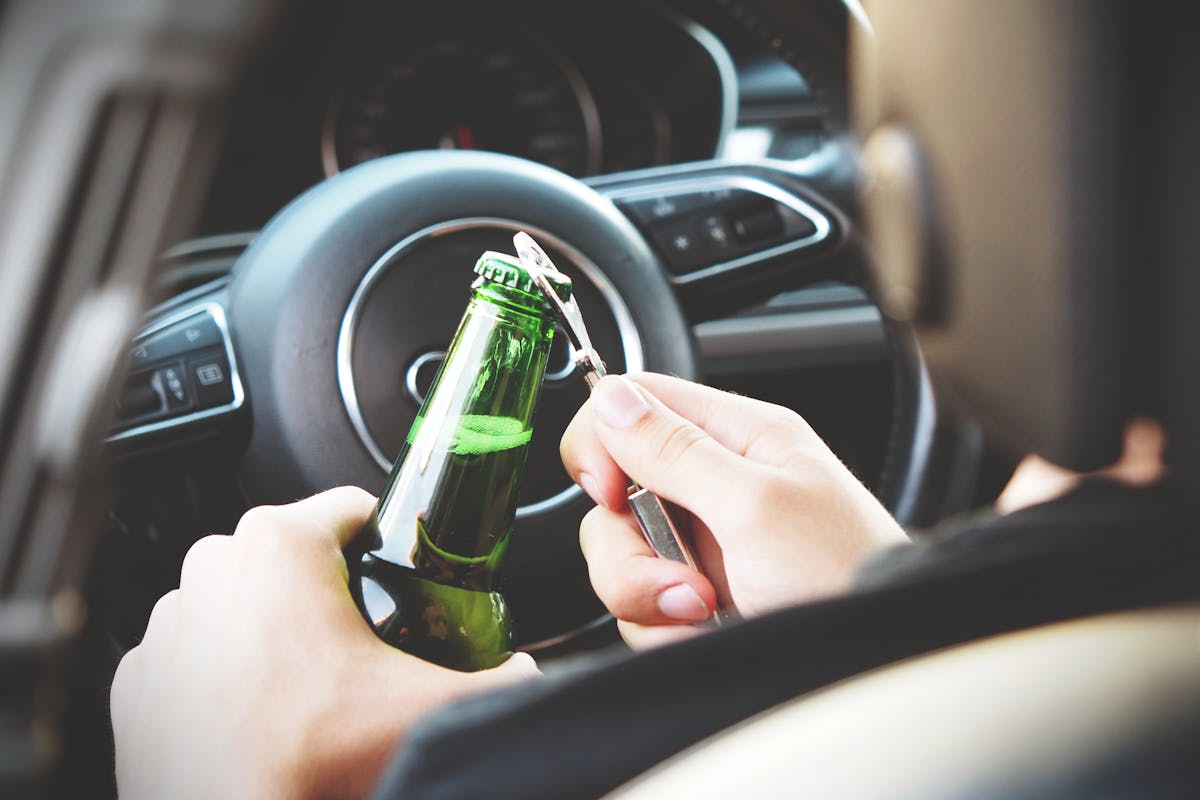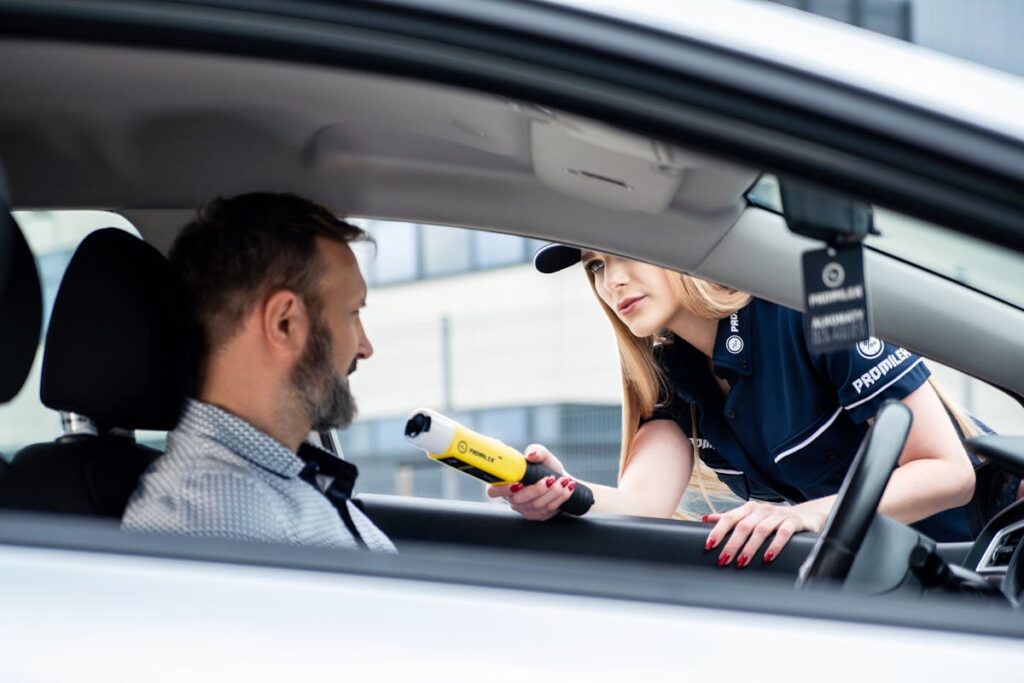Drunk driving accident attorneys offer essential legal representation for individuals impacted by alcohol-related crashes. They meticulously investigate incidents, compile evidence, and assess accident reports to formulate robust cases. These professionals focus on establishing liability, negotiating settlements, and readying for trial to secure rightful compensation for victims. Their expertise guides individuals through intricate legal processes, ensuring just outcomes. The complexity of these cases underscores the significance of having experienced legal advocates.
Understanding Drunk Driving Laws
Although drunk driving is a widely recognized offense, understanding the intricacies of drunk driving laws requires a thorough examination of their components and implications. Drunk driving penalties vary considerably across jurisdictions, influenced by factors such as blood alcohol concentration (BAC) levels, prior offenses, and the presence of minors in the vehicle. Legal consequences typically include fines, license suspension, and potential incarceration. The severity of these penalties often escalates with repeat offenses, highlighting the legal system’s deterrent approach. Additionally, offenders may face mandatory participation in alcohol education programs or community service. These laws aim to reduce recidivism and enhance public safety. The enforcement of such regulations underscores the broader societal commitment to mitigating the risks associated with impaired driving.
The Role of a Drunk Driving Accident Attorney
A drunk driving accident attorney plays a critical role in providing legal representation expertise, ensuring that the rights of victims are upheld and pursued effectively. Their responsibilities extend to a thorough case investigation process, which involves gathering evidence, evaluating accident reports, and consulting with experts to build a strong case. This rigorous approach is essential to achieving fair compensation and justice for those affected by drunk driving incidents.
Legal Representation Expertise
Drunk driving accident attorneys play a critical role in maneuvering the complex legal landscape surrounding DUI-related incidents. Their expertise in legal representation is pivotal for effective client advocacy, ensuring that individuals involved in such accidents receive fair treatment and justice. These attorneys focus on trial preparation by meticulously examining all aspects of the case, from gathering evidence to formulating legal strategies. They are adept at interpreting DUI laws and regulations, which vary by jurisdiction, to build a robust defense or prosecution. Their role extends to negotiating settlements or representing clients in court, where their skills in articulating arguments can greatly influence outcomes. By providing informed legal counsel, they help clients understand their rights and potential legal repercussions, thereby safeguarding their interests.
Case Investigation Process
Leveraging their legal representation expertise, attorneys handling drunk driving accidents commence on a detailed case investigation process to uncover the facts surrounding each incident. This process involves establishing precise case timelines to guarantee all events leading up to, during, and following the accident are accurately documented. Attorneys utilize various investigative techniques such as analyzing police reports, interviewing witnesses, and reviewing surveillance footage. These methods allow them to gather critical evidence and build a thorough understanding of the incident. Additionally, attorneys may collaborate with accident reconstruction experts to provide insights into the accident dynamics. By meticulously piecing together these elements, attorneys aim to establish liability and determine the extent of damages, thereby strengthening their client’s position for possible legal proceedings or settlement discussions.
Investigating the Accident Scene
Thorough examination of the accident scene is essential in determining the causes and contributing factors in suspected drunk driving incidents. Scene analysis involves systematic documentation of physical evidence, which includes skid marks, vehicle positions, and road conditions. These elements provide critical insight into the sequence of events leading to the crash. Accident reconstruction experts often employ advanced technology and methodologies, such as computer simulations and 3D modeling, to recreate the incident accurately. This process aids in identifying potential culpability and understanding the dynamics involved. Precise measurements and photographs taken at the scene serve as invaluable tools for reconstructing the accident. By meticulously analyzing the scene, investigators can establish whether alcohol impairment played a significant role in the occurrence of the collision.
Gathering and Analyzing Evidence
When investigating a potential drunk driving incident, gathering and analyzing evidence is an essential step in building a thorough understanding of the events. Evidence collection involves securing physical evidence from the scene, such as tire marks, vehicle debris, and any visible damage. Witness statements and police reports provide additional context and narratives. Forensic analysis plays a significant role in interpreting this evidence. Blood alcohol concentration (BAC) tests, performed through breath, blood, or urine samples, are pivotal in determining impairment levels. Surveillance footage and vehicle black box data can offer insight into the driver’s actions before the incident. Together, these elements are methodically reviewed to reconstruct the sequence of events, establishing liability and supporting legal proceedings in drunk driving cases.
Navigating Insurance Claims
Managing insurance claims in the aftermath of a drunk driving accident involves a detailed process that requires careful attention to documentation and deadlines. The first step in maneuvering this process is understanding the terms of the insurance policy, which outlines coverage limits and exclusions. Claimants must compile all necessary evidence, including police reports and medical records, to substantiate their claims. Adhering to strict timelines stipulated in the policy is essential, as delays can jeopardize claim validity. Communication with the insurance company should be precise and well-documented, guaranteeing that all interactions are recorded. The claims process can be complex, often requiring negotiation with adjusters to reach a fair settlement. Legal assistance may be beneficial to guarantee proper adherence to procedures and to protect claimants’ rights.
Pursuing Civil Litigation for Compensation
Victims of drunk driving accidents often seek civil litigation as a pathway to obtain compensation for damages incurred. This legal process involves establishing the civil liability of the intoxicated driver. Civil litigation allows victims to pursue financial recovery for medical expenses, lost wages, and pain and suffering. The compensation process typically begins with filing a lawsuit and demonstrating the defendant’s negligence and breach of duty of care. Evidence such as police reports, eyewitness testimony, and medical records is essential in substantiating claims. Throughout this process, the burden of proof lies with the plaintiff. If successful, civil litigation can result in a settlement or court-awarded damages. It remains an important avenue for victims seeking justice and financial reprieve following such traumatic incidents.

Defending Victims’ Rights in Court
In court, drunk driving accident attorneys employ strategic legal representation to safeguard the rights of victims. They focus on maximizing compensation claims through meticulous evidence presentation and robust advocacy. By leveraging legal expertise and negotiating skills, these attorneys aim to secure fair settlements or favorable verdicts for their clients.
Legal Representation Strategies
Although the path to justice can be complex, effective legal representation strategies are essential in defending the rights of victims in drunk driving accident cases. Attorneys must employ precise negotiation tactics to secure favorable settlements outside of court, often by leveraging evidence and legal precedents to advocate for the victim’s interests. In instances where settlement is not achievable, courtroom strategies become critical. This involves meticulously preparing for trial by gathering extensive evidence, presenting expert testimonies, and crafting compelling arguments to effectively convey the victim’s story. In addition, attorneys must anticipate and counter the defense’s arguments to strengthen the victim’s position. Mastery of both negotiation and courtroom skills is crucial for attorneys seeking to uphold the rights of individuals impacted by drunk driving incidents.
Maximizing Compensation Claims
Securing justice for victims of drunk driving accidents extends beyond effective legal representation strategies, demanding a focus on maximizing compensation claims in court. By employing precise compensation strategies, attorneys aim to guarantee that victims receive adequate restitution for damages incurred. Key elements in these strategies include thorough documentation of medical expenses, lost wages, and emotional distress. Attorneys often engage in detailed claim negotiations, leveraging evidence to argue for higher compensation amounts. This process involves analyzing precedents and utilizing expert testimonies to solidify the victim’s case. Furthermore, understanding insurance policies and identifying all liable parties can greatly impact the compensation outcome. Through meticulous preparation and negotiation, legal professionals work to defend victims’ rights, ensuring a just resolution in the aftermath of such incidents.
Emotional and Financial Support for Victims
Victims of drunk driving accidents often face overwhelming emotional and financial challenges, necessitating extensive support systems. Emotional healing is vital as victims deal with trauma, anxiety, and stress following such incidents. Professional counseling services and support groups play an important role in facilitating emotional recovery, providing spaces for victims to share their experiences and learn coping strategies. On the financial front, victims may encounter substantial expenses, including medical bills and loss of income. Financial recovery can be aided through insurance claims and compensation settlements, which help alleviate the economic burden. Legal guidance from specialized attorneys guarantees that victims are equipped to navigate these financial avenues effectively. Overall, a coordinated approach involving both emotional and financial support is necessary for thorough victim recovery.
Choosing the Right Attorney for Your Case
Maneuvering the complexities of emotional and financial recovery after a drunk driving accident often hinges on selecting the right legal representation. An attorney’s qualifications are paramount; prospective clients should verify the lawyer’s expertise in personal injury law, specifically related to drunk driving cases. Bar association memberships and certifications may indicate a higher level of competence. In addition, client testimonials provide valuable insights into an attorney’s track record and client satisfaction. Reviews reflecting successful case outcomes and positive interactions can assist in making an informed decision. It is also advisable to assess an attorney’s communication skills and their ability to navigate legal intricacies. Ultimately, choosing an attorney with the right qualifications who is backed by positive testimonials increases the likelihood of a favorable outcome.
Frequently Asked Questions
How Does a Drunk Driving Charge Affect My Driver’s License?
A drunk driving charge typically results in license suspension, greatly impacting driving privileges. The duration and conditions of suspension vary by jurisdiction, affecting one’s ability to legally operate a vehicle during the suspension period.
Can a DUI Attorney Help Reduce My Penalties?
A DUI attorney can provide legal representation aimed at penalty reduction by negotiating plea deals or challenging evidence. Their expertise in DUI laws may help lower fines, avoid jail time, or minimize license suspension duration.
What Should I Do Immediately After a Drunk Driving Accident?
Immediately after a drunk driving accident, one should guarantee accident reporting to law enforcement and seek necessary medical attention. Documenting the scene and injuries is essential for future reference and adherence to legal obligations and health considerations.
How Long Does a Drunk Driving Case Typically Take to Resolve?
The case timeline for a drunk driving case varies, often taking months to over a year. The legal process involves investigation, court proceedings, and potential plea negotiations, contributing to the duration and complexity of resolution.
Are There Special Considerations for Repeat DUI Offenders?
Repeat offenses in DUI cases often lead to enhanced legal consequences, including longer license suspensions, mandatory rehabilitation programs, and increased fines or jail time. Courts may impose stricter penalties to deter habitual behavior and guarantee public safety.

